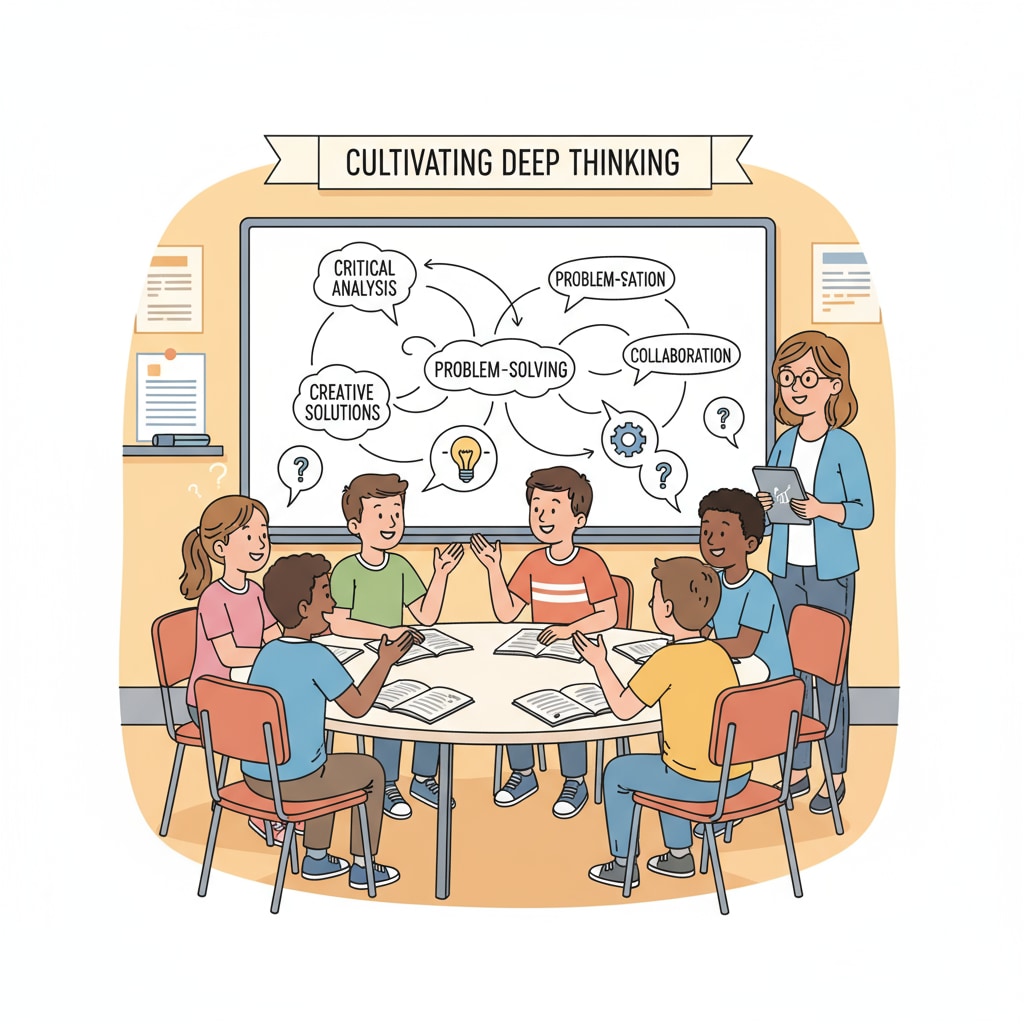In the current age of information explosion, deep thinking, cognitive abilities, and concentration among K12 students are facing challenges. The constant influx of information makes it difficult for students to engage in profound thought. However, there are effective strategies to help educators and parents foster these crucial skills in students.

The Impact of the Information Age on Students’ Thinking
The digital age has presented a double – edged sword. On one hand, it provides vast amounts of information. On the other hand, the sheer volume and speed of information can lead to shallow thinking. Students are often bombarded with fragmented knowledge, making it hard for them to build a comprehensive cognitive framework. For example, with the prevalence of social media and short – form content, students are used to quick consumption of information rather than in – depth analysis. According to Britannica’s entry on the Information Age, the digital revolution has transformed the way we access and process information, which has significant implications for students’ cognitive development.
Creating a Conducive Learning Environment
A good learning environment is the foundation for cultivating deep thinking and cognitive abilities. Firstly, reduce distractions. In the classroom, limit the use of electronic devices that can disrupt students’ concentration. At home, parents can create a quiet study space for their children. Secondly, encourage curiosity. Provide open – ended questions and real – world problems for students to explore. This will stimulate their thinking and make them more engaged. As stated on Wikipedia’s page about Learning Environment, a positive learning environment can enhance students’ motivation and learning outcomes.

Adjusting Teaching Methods
Educators should adopt more interactive teaching methods. Instead of simply lecturing, use group discussions, case studies, and project – based learning. These activities require students to think critically, analyze problems, and communicate their ideas. For example, in a group discussion, students can exchange different perspectives, which helps expand their cognitive horizons. Also, incorporate metacognitive strategies into teaching. Teach students how to reflect on their own thinking processes, which is essential for developing deep thinking skills.
Lifestyle Adjustments for Better Concentration
Students’ lifestyles play a crucial role in their ability to concentrate and think deeply. Adequate sleep is essential. A well – rested brain can process information more efficiently. Regular exercise also helps improve blood flow to the brain, enhancing cognitive function. Additionally, a balanced diet provides the necessary nutrients for brain development. Parents should encourage their children to develop healthy lifestyle habits to support their cognitive growth.
In conclusion, restoring and cultivating deep thinking, cognitive abilities, and concentration among K12 students is a multi – faceted task. By creating a good learning environment, adjusting teaching methods, and promoting healthy lifestyles, we can help students regain their ability to think deeply and develop strong cognitive skills.
Readability guidance: Each section focuses on a key aspect of cultivating students’ cognitive depth. The use of examples and external references helps to clarify the points. Short paragraphs and transitions like ‘however’, ‘for example’, and ‘also’ make the text more accessible.


